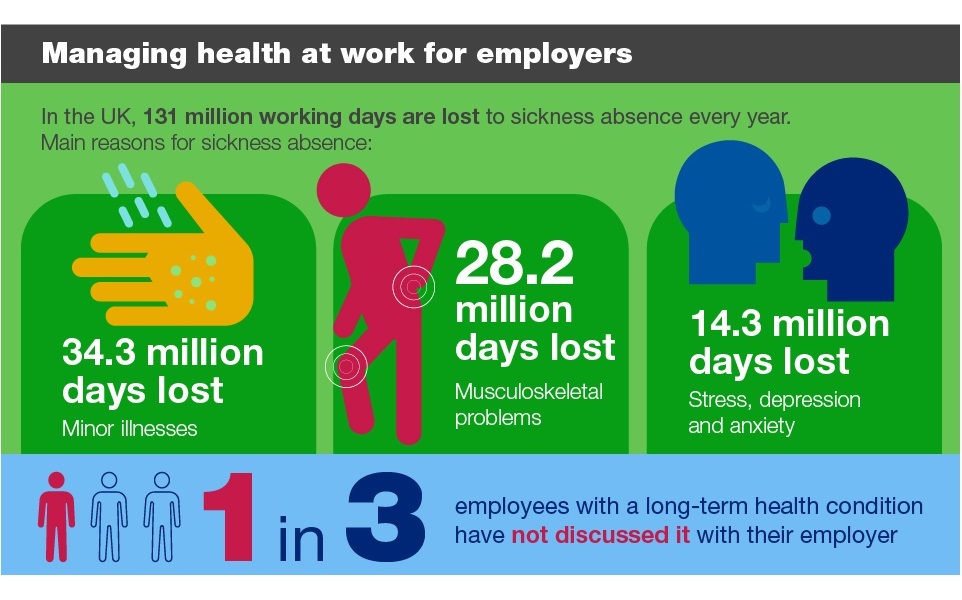Why is wellbeing at work important?
We spend a huge proportion of our time at work, therefore employers play a key role in contributing to the health of the workforce, and in turn the health of the organisation itself. Improving the mental and physical wellbeing in your workplace is more important than you may think.
- The top 3 causes of long-term employee absence are preventable. These are: mental ill health, musculoskeletal conditions and work-related stress.
- In recent years 41% of employees experienced poor mental health caused by work.
- In the UK, 17.1 million days were lost to stress, depression and anxiety, and 6.6 million were lost to musculoskeletal disorders in 2022/2023 (HSE, 2023) .
- Aches and pains accounted for 28.2 million of days lost. This is 17.7% of all sickness absences.
46% of employers still lack a formal strategy or approach to wellbeing and tend to act on an ad hoc basis. But having a productive and healthy workforce should be the aim of every organisation, especially as we recover from the Covid-19 pandemic which has had such a huge impact on business and the wellbeing of employees.
 Public Health England, Health Matters
Public Health England, Health MattersWhy should my organisation get involved?
Investing in employee wellbeing through an awards scheme can improve employee morale, motivation and productivity, and also reduce absenteeism, turnover and the associated costs.
Employers who take an active role in improving and promoting employee wellbeing, could:
- Be recognised for their efforts
- Save between £130 and £5,020 per employee (NICE guidance)
- Retain employees and reduce turnover: your staff will feel better valued within your organisation and will be more likely to stay working for you
- Increase productivity: happier, healthier and more engaged workforce will work more efficiently together, which allows your organisation to thrive
- Aid recruitment
- Access to free training opportunities


